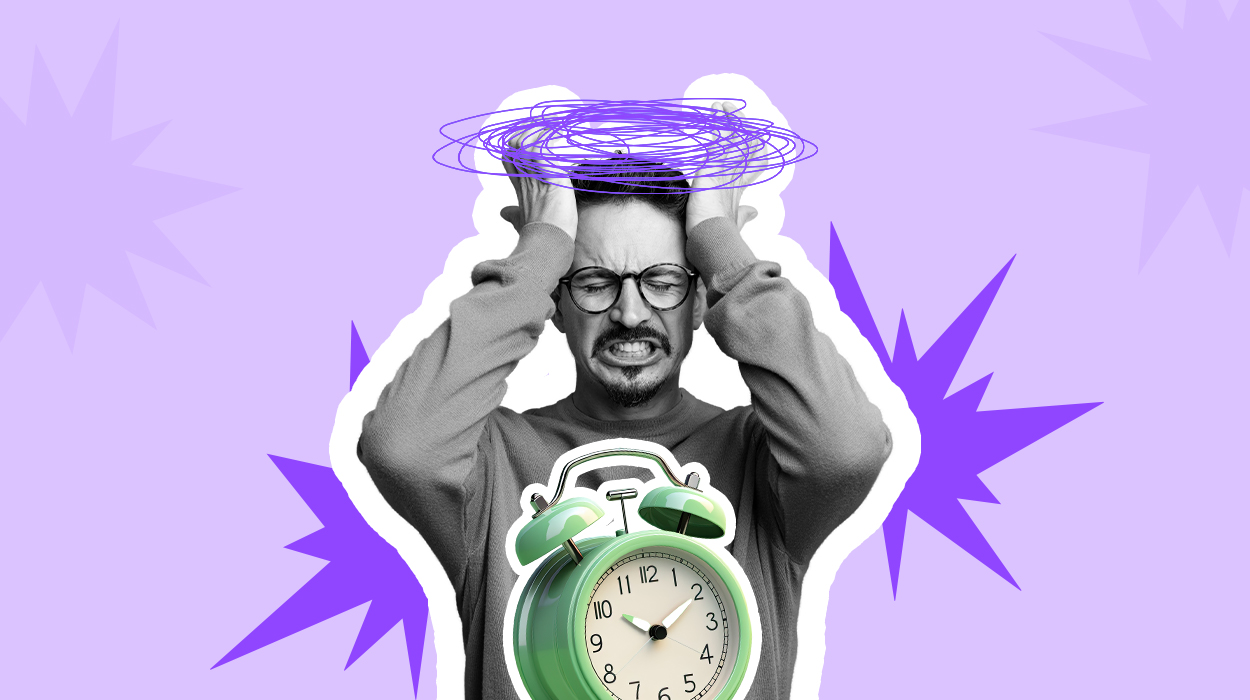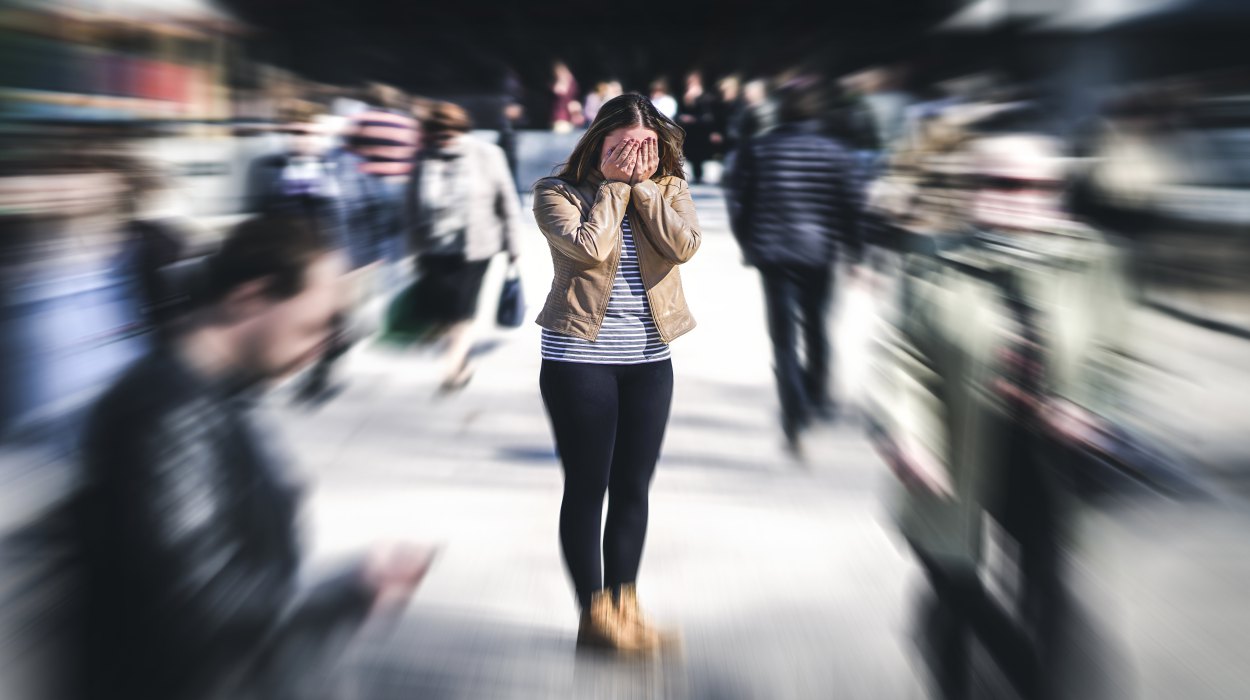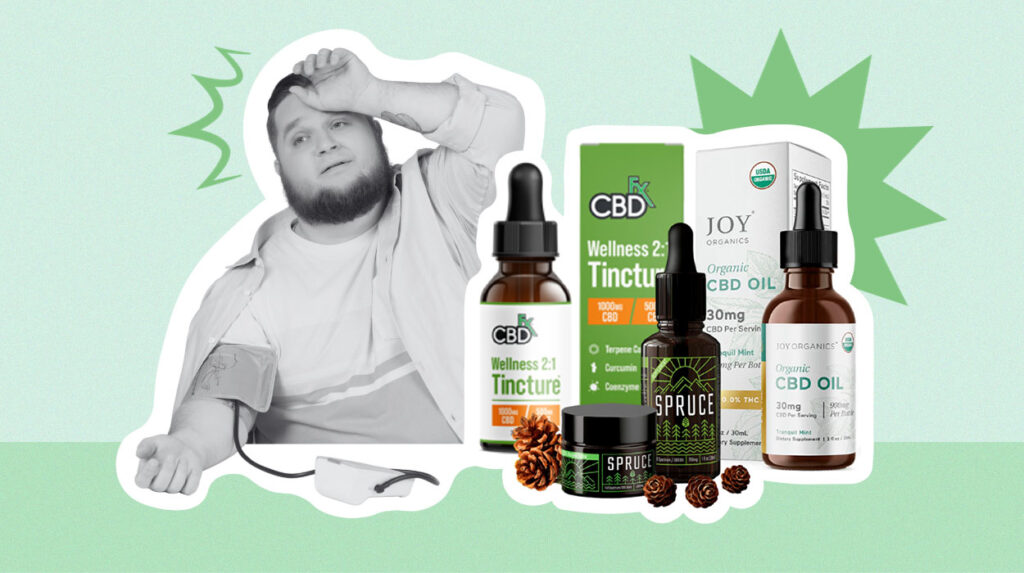
Panic attacks or anxiety attacks are when you experience sudden and intense fear or discomfort with physical symptoms such as sweating, fast heart rate, or dizziness. About 3% of people in the United States will suffer from panic disorder every year; meaning their panic attacks are recurring– and the fear of how long the next panic attack will be can cause its own anxiety.
Understanding what to expect with a panic disorder and having an action plan is key to managing panic attacks. You don’t want to be experiencing panic attack symptoms and wonder, how long do panic attacks last?
Here, we discuss how long a panic attack could last as well as other ways to plan for what to expect during one.
How Long Do Panic Attacks Last
With most panic attacks lasting less than 30 minutes, some people will report longer times. So, What is the worst-case scenario?
Longer times are often due to symptoms continuing after the attack for hours or days, like a hangover effect. Sometimes, attacks can happen in clusters and continue until the cycle is broken.
It is important to consider if there is another health condition such as a heart problem or general anxiety disorder that shares similar symptoms to an anxiety attack.
Average Duration Of A Panic Attack

For most people, the duration of a panic attack is between 5 and 20 minutes. Not everybody has the same experience. This variation in experiences is so important that even the official diagnostic manual (DSM-5)[1] used by medical professionals has changed the wording to be less specific and doesn’t mention specific times of panic attack symptoms for a diagnosis.
The DSM-5 defines panic attacks as a sudden onset of fear or discomfort that peaks within minutes and has four of the following symptoms:
- Palpitations, pounding heart, or accelerated heart rate.
- Sweating.
- Trembling or shaking.
- Sensations of shortness of breath or smothering.
- A feeling of choking.
- Chest pain or discomfort.
- Nausea or abdominal distress.
- Feeling dizzy, unsteady, lightheaded, or faint.
- Chills or heat sensations.
- Paresthesias (numbness or tingling sensation).
- Derealization (feelings of unreality) or depersonalization (being detached from oneself).
- Fear of losing control or “going crazy.”
- Fear of dying.
These symptoms don’t need to be experienced together, and generally, there is a peak at around 10 minutes into the attack, at which point symptoms start to go away.
Symptoms May Last Longer
The symptoms of a panic attack are very physical; your heart beats faster, and you might have nausea, chills, sweating, etc… Naturally, after any physical effort, you will feel tired or even sore.
When the attack’s peak has passed, one or more symptoms may last longer, like hangover symptoms. For example, if caffeine is your trigger and your heart is beating fast, you may gradually return to normal over a few hours. When you know you often have repeat attacks close together, the anxiety about having the next one can stay with you between attacks.
Some side effects from medications used during an attack can make you tired. Discuss with your pharmacist what to expect from prescription and over-the-counter medicines.
It is more important to focus on your action plan to reduce your symptoms rather than on how long you will continue to experience them.
How To Deal With Panic Attacks

We can summarize here the most recent options and recommendations[2] for preventing another panic attack.
When you have recurring panic attacks, it is very important to meet with a medical professional to seek treatment options for prevention and make an action plan. The end goal is to know what can trigger panic attacks and prevent them from happening
Long-term treatment is required with either therapy, medications, or both. There is no one best option, and the treatment plan should be individualized for each person with the help of a mental health professional.
Medications
Prescription anti-anxiety medication should be used along with therapy but may have benefits taken on their own. Every time you start or change treatment, you should follow up with the prescriber after 4 to 8 weeks to discuss how well it works or any side effects.
The usual first choice is one of the selective serotonin reuptake inhibitors or SSRIs. They typically have less serious side effects like sleep disturbance, and they help to treat other mood disorders such as depression.
Suppose SSRIs have been tried and do not work. In that case, tricyclic antidepressants or monoamine oxidase inhibitors may be recommended because they are just as effective but have more severe side effects such as heart problems which also increase the risk of overdose.
Lifestyle And Behavior Changes
Cognitive Behavioral Therapy is a form of talk therapy and may be used alone or with prescriptions for treatment along with other mental health conditions, such as anxiety and depression with the goal to prevent attacks. After eight weeks, progress should be evaluated.
Mindfulness, meditation, and other relaxation techniques have similar effects to therapy in reducing anxiety symptoms to prevent panic attacks or abort an attack.
Improving your lifestyle to manage stress and anxiety triggers helps prevent panic attacks. Changing your diet to avoid caffeine, alcohol, and smoking will help with prevention. Exercising[3] and proper sleep habits also reduce stress and anxiety symptoms.
Avoid Common Triggers
Panicking is a response that helps us survive. Some triggers[4] are common for everybody, such as when they see a threat or emergency. They cause a panic response to make sure the body is prepared. But, it is a problem when anticipating a dangerous situation triggers the fight or flight response.
Most common panic attack triggers, such as taking an exam, going on a flight, or being in some social situations, are easily identified. However, it is helpful to track your diet and activities to see if other triggers are harder to identify.
One study[5] showed that up to 45% of panic attacks happen at home without obvious triggers. They suggest that people are hyper-sensitive to changes and signals inside their bodies, such as hunger or changes in body chemistry. For example, in research, they can cause anxiety attacks by injecting sodium lactate.
When triggered, the body reacts by entering a fight-or-flight state. Think of the following scenario:
- Imagine you are at home, stressed, and thinking about obligations.
- You hold your breath unconsciously, changing the amount of oxygen and carbon dioxide in your body.
- Then, your body tells you that it needs to breathe faster to compensate; maybe even hyperventilating and driving a need for the heart to pump more blood too.
- Your body has just taken a normal response to stress and escalated it into an attack.
What To Do In A Panic Attack
Even when prevention is the main goal, sometimes unexpected panic attacks still happen. How do you manage a panic attack when it happens? Understanding what to expect and having an action plan is key to overcoming fear and returning to feeling normal.
- Practicing deep breathing.
- Acknowledging that you’re having a panic attack.
- Relaxing your muscles.
- Practicing mindfulness.
If you see someone else having a panic attack you should offer help to them and provide a calm and reassuring presence.
- Speak in simple sentences.
- Stay with them.
- Assure them that they are safe.
When To See A Doctor
If it is your first panic attack, you should see a doctor to check the possibility of another health condition. While being treated and attacks are becoming more frequent, lasting longer or repeating, or disrupting your daily life, you should go back to the doctor to reevaluate your options. Always follow up when you have changes to your treatment to evaluate progress.
Conclusion
Having a good understanding of your panic disorder, making a comprehensive action plan, and seeking proper support is crucial to overcoming panic attacks. If you recognize that most attacks are over in minutes and know what to expect during and after, you can focus on your plan for recovery. Remember that symptoms may continue after the attack, and using relaxation techniques, therapy, and medications can aid in managing and preventing more attacks. With the proper knowledge, preparation, and help, anyone can regain control and lead a fulfilling life.
Frequently Asked Questions
Studies have shown they can last up to an hour and suggest that longer times are due to another panic attack or a hangover of symptoms that can persist for hours or days
Cognitive behavioral therapy and prescription medications have the best results. It helps to identify your triggers and avoid them.
Understanding the symptoms of a panic attack and having a plan that includes ways to relax will help the panic attack pass faster. Some prescription medications can help with this.
+ 5 Sources
Tnhealth has strict sourcing guidelines and relies on peer-reviewed studies, academic research institutions, and medical associations. We work mostly with peer-reviewed studies to ensure accurate information. We avoid using tertiary references. You can learn more about how we ensure our content is accurate and current by reading our editorial policy.
- Administration SA and MHS. Mental Illness. Substance Abuse and Mental Health Services Administration (US); 2016. https://www.ncbi.nlm.nih.gov/books/NBK519704/
- What Is A Panic Attack Hangover? Published March 25, 2023. Accessed June 18, 2023. https://www.simplypsychology.org/what-is-a-panic-attack-hangover.html
- Zulfarina MS, Syarifah-Noratiqah SB, Nazrun SA, Sharif R, Naina-Mohamed I. Pharmacological Therapy in Panic Disorder: Current Guidelines and Novel Drugs Discovery for Treatment-resistant Patient. Clinical Psychopharmacology and Neuroscience. 2019;17(2):145-154. doi:https://doi.org/10.9758/cpn.2019.17.2.145
- Saeed SA, Cunningham K, Bloch RM. Depression and Anxiety Disorders: Benefits of Exercise, Yoga, and Meditation. American Family Physician. 2019;99(10):620-627. https://www.aafp.org/afp/2019/0515/p620.html?cmpid=em_AFP_20190318.
- Johnson PL, Federici LM, Shekhar A. Etiology, triggers and neurochemical circuits associated with unexpected, expected, and laboratory-induced panic attacks. Neuroscience & Biobehavioral Reviews. 2014;46:429-454. doi:https://doi.org/10.1016/j.neubiorev.2014.07.027







 By
By 
